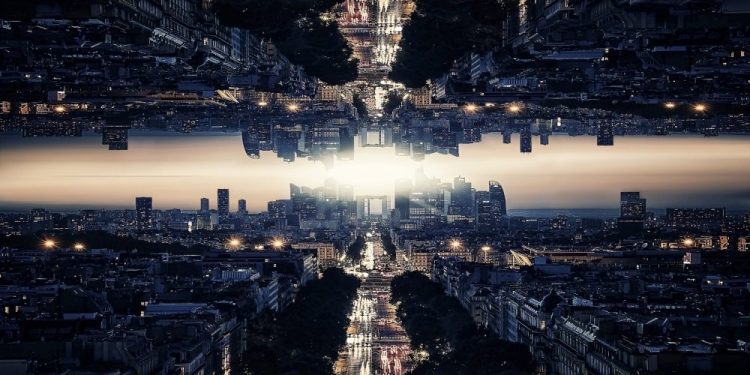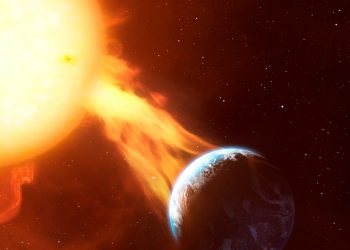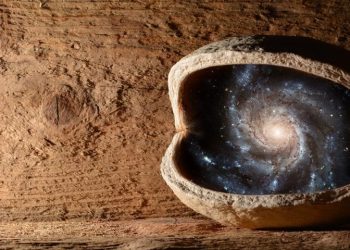The idea sounds like science fiction altogether. Nonetheless, the possibility that our universe is a gigantic simulation has been proposed throughout the years. However, recently, the idea has taken off. Several scientists delve into the possibility that the universe, as we experience it, is no more than a massive simulation. The idea of a simulated universe is intriguing. But even if it were true, how do we prove we are part of a simulation and that the universe we hold so real is far from being a tangible reality? Computer scientists have proposed in the past that, although it is difficult to prove, there could be tell-tale signs around us that hint at a simulated universe, and one such sign could be the existence of “ghosts.” This idea is best defined in the so-called simulation theory, in which humans are no more than avatars in a simulated cosmos.
Curry Guinn, a computer scientist from the University of North Carolina at Wilmington, has hinted at the possibility that everything around us might be simulated. Although this is speculation, computer scientists believe that inevitable glitches in the “matrix,” like the existence of ghosts, the Deja Vu phenomenon, and other similarities, could be parts of errors in a simulation or glitches in a game.
What if the Universe Isn’t Real?
Have you played a game called the Sims? Well, think of our universe as a possible simulated world on someone else’s computer. I know it sounds like science fiction, but many experts don’t see the stimulation theory as a far-fetched idea. Elon Musk is one such expert who shares the belief in a possible simulated universe. In the past, Musk has said revealed: “there is a billion to one chance we are not living in a computer simulation.” But Guinn’s and Musk’s ideas are shared by other experts. Their concept originates from a paper written by Nick Bostrom, a professional philosopher in the United Kingdom. Bostrom’s theory implies a very high possibility that Earth is, in fact, part of a simulated environment.
Three things
The paper penned down by Bostrom argues that at least one of the following propositions is true: (1) the human species is very likely to go extinct before reaching a “posthuman” stage; (2) any posthuman civilization is extremely unlikely to run a significant number of simulations of their evolutionary history (or variations thereof); (3) we are almost certainly living in a computer simulation. But, how do we spot a sign we live inside a simulation once again? According to Guinn, take a look at games developers make across the world.
Deja Vu
As revealed by Guinn, we need to look for bugs and glitches in the program. “Glitches in the system. Déjà vu, such as in the Matrix movie when a character sees a cat crossing a doorway repeatedly, may be one glitch,” Guinn revealed. “Ghosts, ESP, coincidences may be others. The laws of physics in our universe seem peculiarly designed with a set of constants that make carbon-based life possible. Where are the edges?” In addition to the above, which has already been discussed previously in this article, I find the following article of great interest. Published by SyFy, an article titled “This Black Hole Glitched Like a Cosmic Computer…Then Restarted Itself Out of Nowhere” can be used as an additional example of a simulated universe.
Black Holes
The article refers to a cosmic phenomenon that astronomers posted, which amazed them. Can a black hole turn on and off by itself? We don’t know much, but one black hole just did that, and scientists observed it at the right time to observe it happening in real time. But the interesting thing about this is that a black hole turning on and off by itself isn’t something you see every day. As revealed by scientists, “phenomena like this just don’t happen.” Scientists observed a flash of brightness from a supermassive black hole that dimmed unexpectedly, almost as if someone had turned it off on purpose. This was surprising, but what filled next was even more: suddenly, and entirely out of nowhere, the black hole turned itself back on, leaving experts stumped.
Glitches in the universe
However, scientists observed more than just a black hole going on and off. They witnessed the black hole’s corona—a bring trying of material and high-energy charged particles on the event of its event horizon. The corona went dark all of a sudden and then lit up again. We can’t observe black holes directly, although we did snap a historical image of a black hole last year. Although the above phenomenon could be partly explainable by astrophysics, specific—similar—phenomena could be viewed by experts as glitches in the universe, helping us reveal a simulated cosmos.
Join the discussion and participate in awesome giveaways in our mobile Telegram group. Join Curiosmos on Telegram Today. t.me/Curiosmos











